Tatacoa Desert
Unparalleled stargazing, one of Colombia's best observatories, and a swimming pool can all be found in the middle of this ancient tropical forest.
If Ray Bradbury traveled to the Tatacoa Desert, his Martian Chronicles might have been shaped by this otherworldly landscape. Covering a large area around the small town of Villavieja in the department of El Huila, the Tatacoa is home to one of the most important observatories on the continent. Its expansive land is not covered with dunes, as could be expected, but rather with rocky canyons that form dry labyrinths whose red and grey colors are interrupted by the occasional green bush.
Its unique landscape is explained by the misnomer that characterizes it. The truth is, the Tatacoa Desert is not a desert at all, but a dry tropical forest. Millions of years ago, it was a lush forest full of vegetation and animals. Today, earth and rock stand where trees and flowers once stood, contrasting the ever-present Andes mountains that stand in the distance. The landscape is divided into two areas: Cuzco, tinted in a deep ochre; and Los Hoyos, colored in an ashy grey.
Along the main road that cuts through it is one of the most important observatories in the country. Though small, the observatory boasts thousands of visitors throughout the year, and a team of knowledgeable astronomers who share their enthusiasm. Each night, it opens its doors to visitors, who go up to its roof and spend around two hours gazing at the sky and learning everything from the history of the names of constellations to how distance is measured. The highlight of the evening is, of course, getting to use the telescopes to feel closer to the stars.
As the second largest arid area in Colombia, the Tatacoa is one of the most popular places for camping and geological excursions. Most people who head to the Tatacoa plan to walk into the loneliness of the canyons and find a place to set up camp. Isolated from the noise of other people, it is here that they do the best star-gazing.
Perhaps the most incongruous sight in the ochre landscape is the aquamarine swimming pool set into the dry rolling landscape. Hostels run by the few families that inhabit the area also offer beds and hammocks for those who want to see the desert without venturing out into its maze. Regardless of their preference, most travelers end up at The Pool at some point. An unlikely oasis, this man-made pool is filled with natural water springing from the desert. Beer runs aplenty, and the coolness of the water is deliciously refreshing.
Know Before You Go
The easiest way to get into the desert is by bus. Head to Neiva, the capital of the El Huila department, and ask around the central bus station for routes heading to Villavieja. You'll get on a small vehicle that will charge $3-$5 to take you into town, but you can ask to be dropped off at the desert for a little extra.

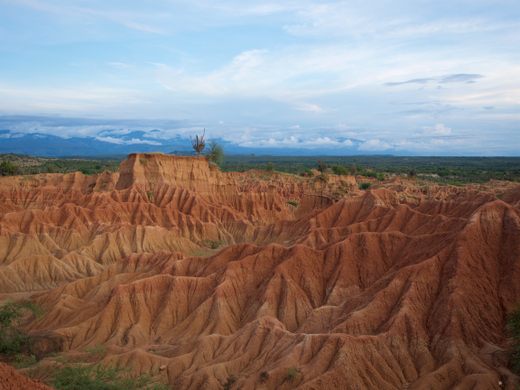

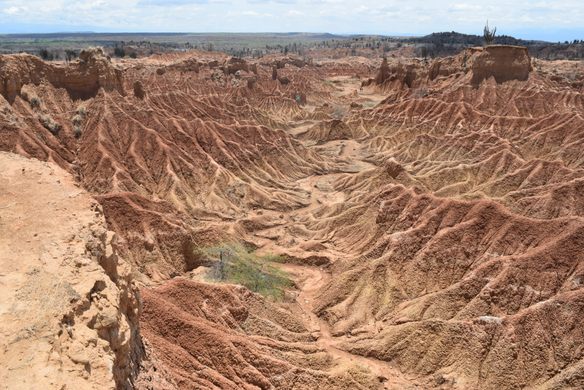

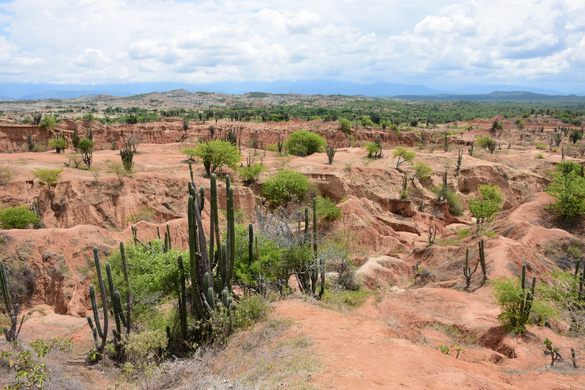
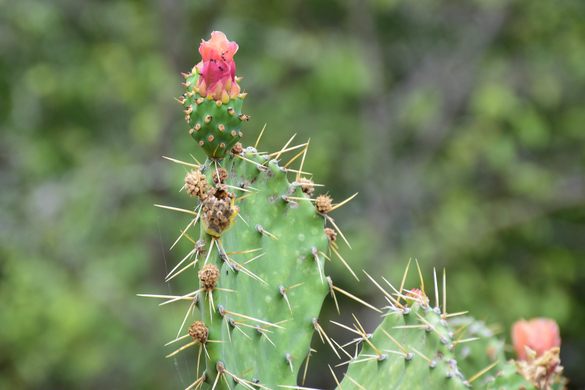



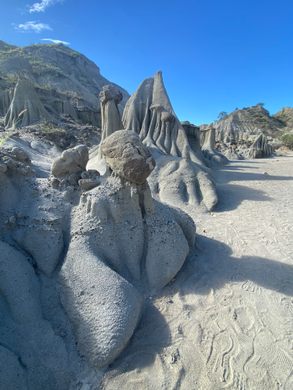

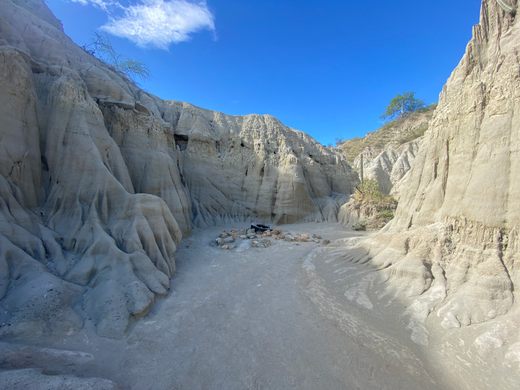






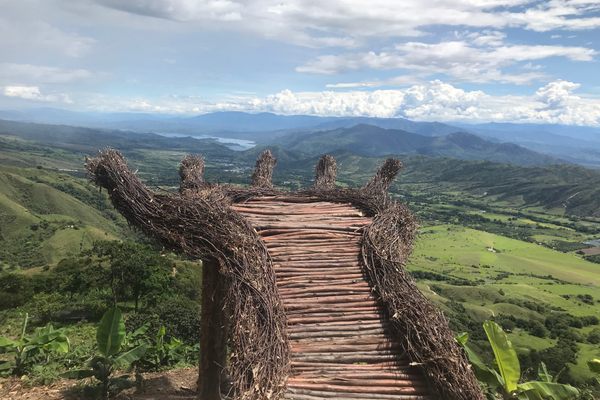
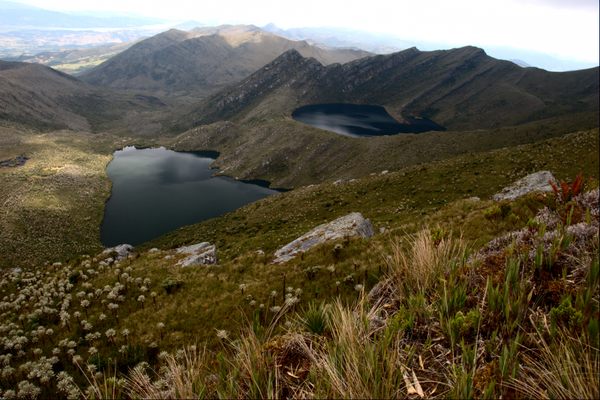
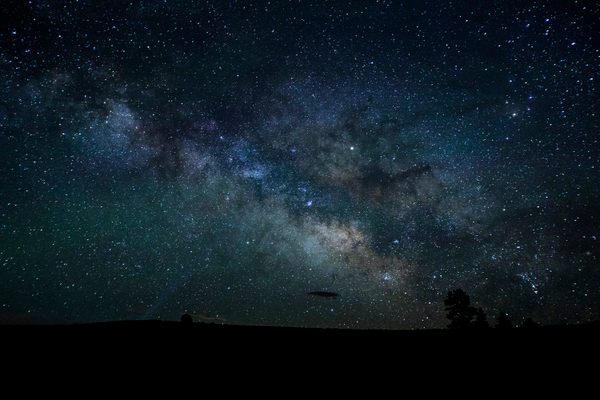
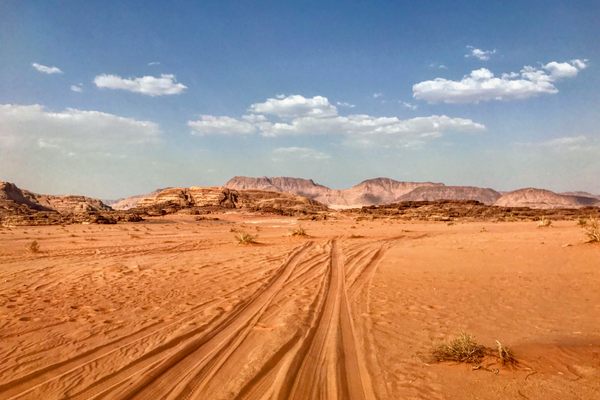
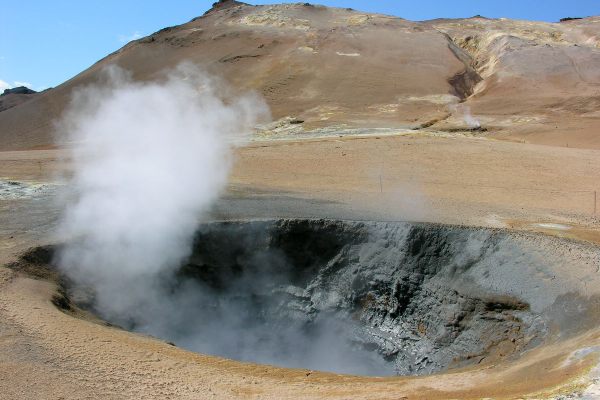


Follow us on Twitter to get the latest on the world's hidden wonders.
Like us on Facebook to get the latest on the world's hidden wonders.
Follow us on Twitter Like us on Facebook